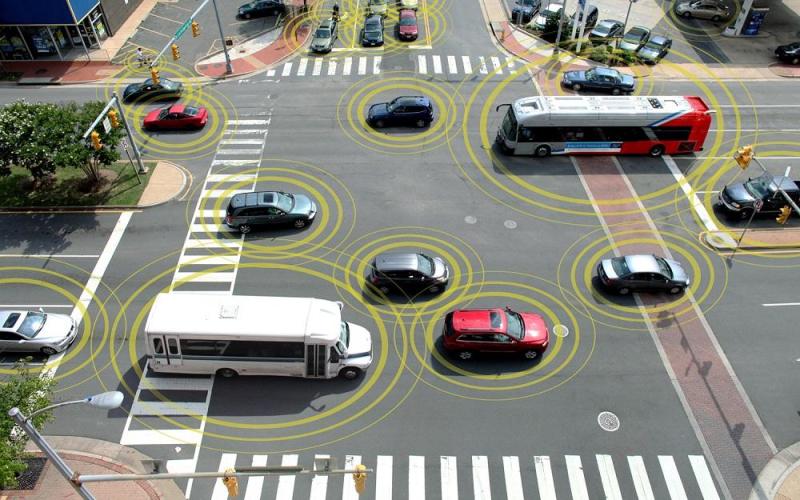Ford Motors will adopt a technology that allows similarly equipped cars to communicate with each other and potentially reduce pedestrian and driver deaths, but skeptical safety experts say the system could merely create more distracted drivers and endanger the pedestrians it is designed to help.
The technology, called C-V2X, would allow vehicles to communicate with each other — or with infrastructure and even pedestrians' cell phones. The goal is to reduce crashes by beaming signals to vehicles and passers-by. But pedestrian safety experts think it could allow drivers to simply become careless.
“You don’t want people thinking they don’t have to look for pedestrians,” said Sally Flocks, executive director of the Atlanta-based advocacy group PEDS. “I’m not opposed to the technology, I just don’t think it will solve the pedestrian safety problem.”
The biggest problem, Flocks added, is that some pedestrians don't want to walk around with cell phones so they can be alerted to potentially reckless drivers, who are supposed to be looking out for them. Also, smartphone use is often lower in impoverished communities where a disproportionate number of crashes occur already.
Automobile manufacturers have been promising safer cars since Ralph Nader published “Unsafe at any Speed” in 1965. Cars have since become larger, but pedestrian and driver deaths are up nationwide, possibly due to a false sense of security drivers feel from larger vehicles, plus the dangerous distraction posed by cell phones.
Other experts say that better road design — which is a function of government, not America's car makers — would benefit pedestrians more than any high-tech gizmos inside today's cars.
“I would like to see streets that accommodate all users safely, rather than just planning for cars,” said Kate Kraft, Executive Director of the pedestrian advocacy group America Walks. “We know what to do to make roads safer, we’re just not doing it. There’s no political will for it.”
She added that technological advancements cannot be considered a stand-in for better road designs and regulations on driving such as speed control.
Whatever your opinion, Ford says the C-V2X system allows vehicles to communicate with traffic management infrastructure such as stop signs and traffic lights and pedestrians' cell phones through wireless sensors — similar to the technology self driving cars will use. Cars equipped with C-V2X will only be able to communicate with cars that have the same technology however, and any communication between cars and pedestrians relies on pedestrians to have previously downloaded V2X software onto their phones — and then to have the phones on hand when they are walking. Ford says it will start equipping cars with the technology in 2022.
The C-V2X system is similar to the vehicle communication system DSRC championed by Toyota, which uses WiFi technology. C-V2X uses much of the same technology as DSRC, but the two systems are unable to communicate with each other. Leading automakers are leaning towards adopting C-V2X, according to Forbes, a possible first step towards a single, unifying industry standard.






